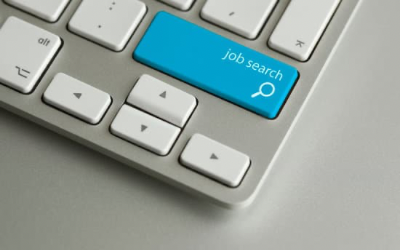Are you feeling frustrated with your career change journey? Have you tried to break into a new industry only to realise that you’re not gaining any traction? Are you applying for jobs on SEEK and not getting any responses? Are recruiters not giving you the time of day?
Unfortunately traditional job search tactics are far less effective for career changers and those relaunching their career after a long absence. Responding to advertisements on job boards, and working with recruiters, tends to work best for traditional candidates who are already working in the same area in which the job has been advertised.
Therefore, if you are a ‘career changer’ or a ‘relauncher’ we always recommend using a more active job search method, rather than relying only on passive job search techniques.
Active job search is all about untapping the hidden job market – the jobs that are not advertised. As you become more senior, the amount of active job search should increase each time you seek a new position. Someone at a manager level should be looking at splitting their job search into 75% active / 25% passive whilst someone at a CEO / Executive level should be increasing their active job search to closer to 100%. Even graduates should be aiming to undertake a minimum of 25% active job search when seeking an entry-level position if they want to greatly increase their chances of securing employment.
Does the hidden job market exist?
Many of our clients ask us if the ‘hidden job market’ really exists. The short answer is ‘yes’. It is estimated that just 20-30% of available roles are actually advertised. The rest are found in the hidden job market. Typically, the more senior the role, the less chance it will be advertised.
These jobs are often filled before they are advertised, and more often than not as the result of networking. The reasons for these un-advertised jobs vary greatly but may include;
So what are active job search strategies?
Active job search strategy basically means stepping away from the computer and setting up face-to-face connections where possible. It requires a focused approach to find the next opportunity. It involves using and expanding your circle of connections to spread the word about what you are seeking and what you can offer.
The three key steps
There are three key steps to tapping into the hidden job market as follows:
- Map out your network
- Develop and deliver your message
- Follow up and organise informational interviews
The best place to start is with your current network – school alumni, university alumni, friends, friends of friends, ex-colleagues, clients, ex-clients, internal colleagues, schoolyard friends, local business contacts etc. Think of whom you know and whom they know.
Begin with the end in mind. Identify the industries/companies that you think you would like to work for, and then work backwards to work out who in your network is connected to people in that industry/company that can set up an introduction for you.
Next, get clear on your message:
- Who you would like to talk to and why
- What information are you keen to find out
- What industry sectors are you interested in
- What organisations have you identified as companies that you would like to work for
Then get in contact with your network and ask for their help. An email such as the one below is the approach we recommend:
“I’m currently considering a change in career/industry and was hoping to get your help. I want to use my marketing and communication skills but to change industry and work with a reputable company within the cosmetics/skincare industry. I’d ideally be looking for a job in the marketing / communications team in companies such as Sukin, Aesop, L’Oreal etc. Please could you email me if you know of anyone in this industry that you could introduce me to”.
Once you have communicated your message, then follow up and see if you can organise an informational interviewwith as many people as you can in your industry/ organisation of interest. This will not only help you gather the information you need to make a career change but will also ensure that you are building connections in your industries of interest.
Of course not everyone is going to have time to meet you for an informational interview. Make it as easy as possible for people and be clear what you are wanting from them. Not many people these days have time to spend an hour with someone they don’t know unless it is mutually beneficial. Start small by suggesting a 20-minute meeting in their lunch break or even a phone call to start with.
Other active job search strategies
Other active job search strategies might include direct applications to hiring managers / internal recruiters, networking through LinkedIn, attending industry Meetupsin your city or attending other professional networking groups such as BNI, Rotaryor Eventbriteindustry events.
If you are feeling frustrated by your career change or job search, then have a go at commiting to some active job search over the next month and see if it makes a difference. We would be keen to hear how you get on!
If you need some assistance with creating an active job search strategy, then contact Leah Lambart or Clare Pickard at enquiries@relaunchme.com.au to discuss how we may be able to help you tap into the hidden job market.
An example ‘tell us about yourself’ using this response might look like the following:
“First of all, thanks for inviting me to interview today. I was delighted to have the opportunity to meet with you today.
As you can see from my resume, I have been working in Human Resources for six years, commencing my career with Company A as an HR Assistant before being promoted to the position of Human Resources Advisor after three years. In my current role as HR Advisor, I have had great exposure to broad HR areas including employee relations, industrial relations, grievances, change management as well as advising the business on relevant HR policy/practices and legislation. I was also instrumental in developing and implementing a new employee on-boarding process, which has had great feedback from new employees.
My strengths are in my relationship-building and coaching skills and I have successfully managed stakeholders across three key areas of the business advising on key staffing issues.
I am now looking to take on greater responsibility, to get involved in HR strategy and to lead a small team, which is why I have applied for the HR Manager role that you are advertising. I believe that my specific retail industry experience and my extensive knowledge of IR/ER will make me an ideal candidate for this role. I also believe that my values are aligned to your organisation as my personal values are integrity, teamwork and accountability which I have actively demonstrated in my current role”.
If you follow this simple structure and tailor your response around the specific needs of the company then you will create a professional impression from the very start of the interview.
We would love to know if you have found this article to be useful.
For further information on interview coaching or mock interviews, please contact us on enquiries@relaunchme.com.au or connect with us through our Facebook / Instagram account.





